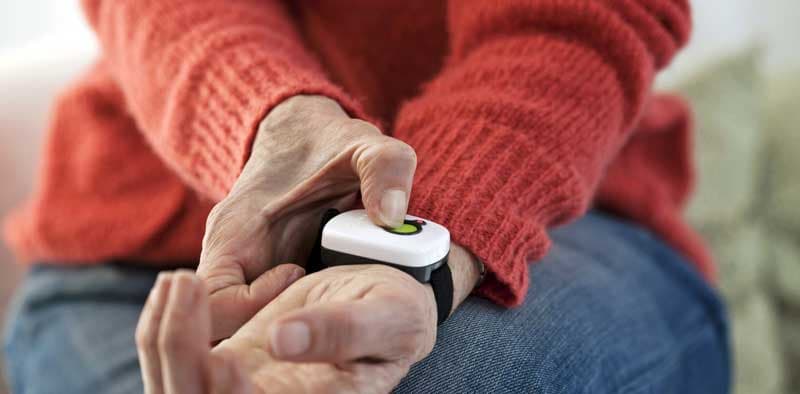Future Tech: Predicting Upcoming Trends in Medical Alerts
The medical landscape of emergency alerts is changing dramatically. This sphere has been undergoing several advancements that are revolutionizing the ways in which people attend to their health.
However, traditional emergency buttons are being joined by a wave of inventive technology that promises to change the way we monitor and protect our health, especially for vulnerable populations.
Medical alerts look forward to wearable devices with built-in fall detection and AI-powered systems predicting emergencies, among others. Five key trends that will redefine medical care and enable self-management of wellness are discussed herein.

What Will We Learn?
5 Cutting-Edge Advancements in Medical Alert Systems
In today’s world, medical alert systems are changing how we think about protecting health and making tomorrow’s healthcare more accessible, tailored, and preventive.
Medical alerts have gone high-tech! Discover AI-powered fall prediction among five other cutting-edge trends, such as smart home integration, that all aim at improving your safety and health.
1. Proactive Health Monitoring:
Medical alerts have moved away from simply responding to emergencies when they happen.
Proactive health assessments are now possible due to advanced sensor technology and sophisticated algorithms. They monitor vital signs, activity patterns, and even environmental factors, thereby identifying potential risks before an emergency arises.
Suppose a system detects an increase in blood pressure or an erratic heartbeat, then triggers an alert or suggests how lifestyle may be changed accordingly. The proactive approach allows individuals to take a preventative stance on their own health.
2. Telehealth Integration:
Medical alerts are increasingly merging with telehealth services. Consequently, medical alert systems are beginning to include telemedicine capabilities that enable users to speak directly with doctors via teleconferencing.
Imagine that one could have chest pain and instantly do a video consultation with a doctor or nurse in seconds. If there is any medical emergency, this will make it possible for faster diagnosis, treatment, and peace of mind.
3. Voice-Activated Medical Alerts:
Voice-activated medical alerts are game-changers for those people who have mobility impairments or issues with their dexterity. Such systems allow users to call for help easily by just giving voice commands without having to press buttons or pick up pendants.
Picture yourself falling in your bathroom and unable to rise – the aid of a voice-activated system would mean you can call assistance free-handedly, therefore responding quickly and possibly reducing further injury potential.
This technology enables people to feel safe while living autonomously at home.
4. Integration with Artificial Intelligence and Machine Learning:
AI combined with machine learning is employed to build smarter medical alerts. Systems like these can study an individual’s typical behavior patterns as well as spot anything irregular that suggests a possible health condition.
Can you imagine an AI system recognizing slight changes in the manner one walks which may precede falling before it happens? It is exactly this kind of sophisticated analysis that brings new dimensions to personalized care and risk prediction levels.
5. Smart Home Devices Integration:
Medical alerts are no longer limited to single devices. They can be used together with the smart home system.
So, with this integration, if one thinks that a fall might occur, smart lighting will automatically light up the space alongside unlocking doors and regulating the thermostat to avoid hypothermia.
This service encompasses an entire web of security systems that help it anticipate and deal more effectively with emergencies.
Final Thoughts
A lot is anticipated in medical alerts in the future. These advancements make it possible for people to be in charge of their health and live safely at home.
As technology evolves, medical alerts will continue to redefine how we safeguard well-being and create a future where healthcare is more accessible, personalized, and proactive.
